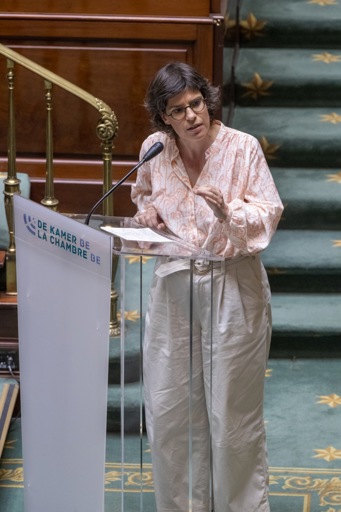The Belgian government has given the green light for a ‘Winter Plan’ that should help Belgium and its neighbours through a tough winter in terms of energy following supply disruption caused by the Russian invasion of Ukraine.
It is now summer, so the effects are still relatively limited, but Europe will have a difficult winter in any event, Energy Minister Tinne Van der Straeten warns. The government has therefore drawn up a winter plan containing a number of measures that should prepare the country in the short and longer term.
This has nothing to do with energy security in Belgium, which is less vulnerable to interruptions in the flow of Russian gas since it receives its gas mainly through direct connections with Norway and the United Kingdom, and via the LNG terminal in Zeebrugge.
On the other hand, large neighbouring countries such as France, and especially Germany, may run into problems next winter, which would have a major impact on the Belgian economy and on energy prices.
“The question is not so much whether we will have enough energy, but whether we can show maximum solidarity with neighboring countries,” said Minister Van der Straeten said at a press conference after the latest session of the Council of Ministers.
One of the main measures being envisaged is the possible extension of the service life of the Tihange 2 nuclear plant – which should normally close on February 1 – to early March 2023. The government has asked Engie, which operates Belgium’s nuclear plants, to discuss this with the national nuclear safety authority, FANC.
If the FANC gives the green light, the government will adjust the legal framework for this, Van der Straeten said.
An Engie spokeswoman stated on Thursday that an extension of Tihange 2 – as well as Doel 3 – was impossible for technical and safety reasons.
Meanwhile, the gas storage capacity in Loenhout will be completely filled by winter, so producers have been asked not to plan maintenance in winter.
Companies need to have their own internal emergency plans in case supply should fail, while the federal government chips in by setting the thermostats in government buildings a little lower.
Prime Minister Alexander De Croo has also made a broad appeal, calling on Belgians not to waste energy. “We can handle the energy war that Putin has started, if we stand shoulder to shoulder,” he stressed. “Eleven million little ones make one big one.”

